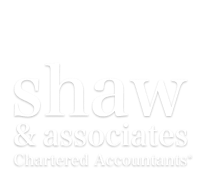Incorporation Is Limited Liability, Not No Liability
April 17th, 2024
Posted in: Tips & Insights

There is common idea that incorporating your company will protect you, the owner, from legal liabilities. This is not wrong, but it is incomplete—it’s more accurate to call it “limited liability.”
As noted by money.ca, “Incorporating your business doesn’t completely protect you from liability. For example, if your corporation doesn’t have sufficient assets to secure debt financing, lending institutions will often insist on having the business owner guarantee the loan. This means that you and your personal assets would still be on the hook if your business can’t meet its repayment obligations, essentially making your corporation’s “limited liability” null and void.”
Piercing The Corporate Veil
Courts are reluctant to “pierce the corporate veil,” but they will under certain circumstances.
Per lcolaw.ca, “[C]orporations are considered separate legal persons under the law. This means that they are distinct from their shareholders (i.e., owners), and therefore can shield their shareholders’ personal assets from creditors of the corporation….As such, the courts are very reluctant to “pierce the corporate veil”; that is, they will rarely look behind the corporation to its shareholders, directors and officers for holding such persons personally liable for the acts of the corporation.
However, there are some exceptions created by case law (albeit each requiring a high burden of proof), where a court will deem it just and equitable to pierce the corporate veil. These exceptions should be understood by small business owners who have incorporated their business, as well as by legitimate creditors looking to recover money owed to them.”
Oops, Forgot To Pay My Taxes
As a Canadian business owner recently learned, it doesn’t protect you from not paying your taxes, either. Canadian-accountant.com says, “Directors can be held liable for a corporation's taxes. This can be protected against if a director takes active and prompt actions to address and rectify failures, which would allow for a successful application of the due diligence defence. This involves understanding the specific obligations under both the Income Tax Act and Excise Tax Act, and the expected actions of a director in situations where a failure to meet those expectations occurs.”
In plain English, a director/company owner has a responsibility to know what your company’s tax obligations are, and to fulfill those obligations. The buck stops with the owner/director – it is your obligation to know and understand what your employees, corporation, and hired professionals are doing (or not doing).
Outsource Your Taxation Requirements
To take those worries off your shoulders, Shaw & Associates would love to help you with all of your taxation needs. We know when taxes are due and we can look after all of the requirements for you.
Contact Shaw & Associates Chartered Accountants for accounting help you can count on. One complimentary meeting with us will put you and your business on a more profitable and positive path.

